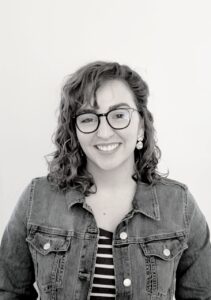Working with Twice Exceptional College Students
by Emily Kuhlman, M.A., CRC
Today’s blog post is a submission from one of IPA’s student members. Student membership is an important part of IPA. If you’d like to mentor a student member, please contact Alissa Doobay. You can also visit the website for donation to sponsor a student here.

I have learned a great deal while working with the Academy for Twice Exceptionality, a pilot program at the Belin-Blank Center at the University of Iowa aiming to provide support for twice exceptional college students with Autism. Twice exceptionality (2e) refers to gifted students who also have some form of disability. The exceptionalities lie within giftedness (e.g., creativity, high academic achievement, etc.) and disability (e.g., specific learning or neurodevelopmental disability). I have been working with students on individual goals to ease their transition into college student life. Some students wish to discuss organization and time management, others want to discuss stress and imposter syndrome. All are hoping to work on their goals to be successful college students – beyond the classroom. Here are the three biggest things I have learned in my work with these students.
1. Support looks different for each individual. One of my mentors often says, “When you meet a person with Autism, you have met one person with Autism.” Autism Spectrum Disorder is just that – a spectrum. Persons with this diagnosis have a wide variety of strengths, traits, and needs. A “one size fits all” approach would not work well with this population. My work with each student has started by first getting to know them as individuals. Only then can we discuss specific goals, and talk about what has been the most effective type of support in the past alongside what hasn’t worked well. For some students, this looks like weekly check-ins and encouragement. Others need more involvement, with extra emails and text reminders. Supporting students with Autism requires an individualized approach, which makes my work exciting and always different every day!
2. Support is most effective when goals come from the students themselves. As with anyone else, goals are most attainable when they are reasonable, relevant, and realistic. No one likes to be told what their goals should be! Goal setting and adjusting are a big part of my work. I want students to feel they can set big goals. I also encourage them to take smaller steps to reach their goals, or adjust their timeline or approach if it’s not going well. The most important thing to me is that goals come directly from the students themselves – not from their parents, their teachers, or their peers.
3. Support works best when based on a relationship. With my background in counseling, I have learned that the most successful growth and change comes through the support of a strong working relationship. With each student I am working with, I try to build relationships to really get to know the students – their interests, their strengths, and their needs. It is only by understanding more of who they are that I am able to assist with individualized support to work towards their goals. This has also been the most enjoyable part of my job, as I now know many wonderful students!
